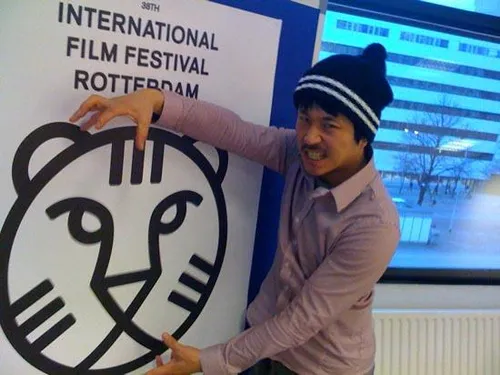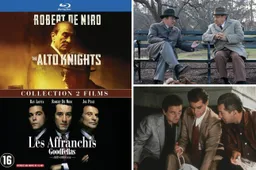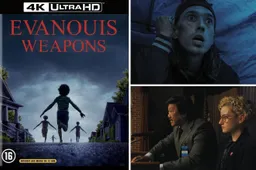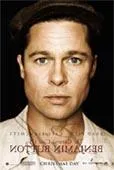One of the fourteen nominees for the VPRO Tiger Award Competition held at the International Film Festival Rotterdam is the powerful movie Breathless . Yang Ik-June not only directed his first feature film, at the same time he had written the script for it, produced and played the main character Song-Hoon. MovieSense spoke to him at the IFFR.
Was it difficult to combine the directing with the acting?
For my first short film I did both the acting and directing, so I was already kind of used to this situation. Though I had to reduce my energy for the acting, for I could not focus on my acting only. I used forty percent of my energy for my acting. During the making of Breathless I never stopped writing and tried to be constantly attached to the project. Luckily there were many people during the shoot to support me and ask for advice. But in the end I had to do it myself and finish what I had started. For it has been such a personal project, it drew me nearer and nearer to the completion of it. This was my motivation.
For my first short film I did both the acting and directing, so I was already kind of used to this situation. Though I had to reduce my energy for the acting, for I could not focus on my acting only. I used forty percent of my energy for my acting. During the making of Breathless I never stopped writing and tried to be constantly attached to the project. Luckily there were many people during the shoot to support me and ask for advice. But in the end I had to do it myself and finish what I had started. For it has been such a personal project, it drew me nearer and nearer to the completion of it. This was my motivation.

Yang Ik-June
Is it challenging for you to see this film, because it is so personal?
Indeed a sad feeling occurs to me while watching this film and therefore it can be difficult to see it. But this is not a film about hurting anyone’s feelings. It is about to cure ones heart, to heal broken feelings. The movie took me a lot of energy and is turned out to be very personal, but it is the start of the cure.
Indeed a sad feeling occurs to me while watching this film and therefore it can be difficult to see it. But this is not a film about hurting anyone’s feelings. It is about to cure ones heart, to heal broken feelings. The movie took me a lot of energy and is turned out to be very personal, but it is the start of the cure.
How was it to play such a violent character such as Song-Hoon?
Since I was responsible for so many facets of the movie, I actually did not have the time to prepare myself properly for the acting. When I went to the filming locations, I just most of the time had to improvise my role. There was a script, so I still had to memorize dialogues. But it was never hard to play the part of Song-Hoon, because I played the role from the bottom of my heart. All the lines come from there.
Since I was responsible for so many facets of the movie, I actually did not have the time to prepare myself properly for the acting. When I went to the filming locations, I just most of the time had to improvise my role. There was a script, so I still had to memorize dialogues. But it was never hard to play the part of Song-Hoon, because I played the role from the bottom of my heart. All the lines come from there.
What can you say to persuade viewers who cannot stand violence to see your film?
It was never my intention to make a film that would please the audience. Therefore I was rather surprised by the reaction of the public and I could never have expected the reaction of the public and the interest of international festivals. I started this movie to cure myself and to heal my wounds. What I want to say to the audience is if you have these wounds, it is not good to try and cover or hide them. You can only find salvation when you dare to expose your wounds.
It was never my intention to make a film that would please the audience. Therefore I was rather surprised by the reaction of the public and I could never have expected the reaction of the public and the interest of international festivals. I started this movie to cure myself and to heal my wounds. What I want to say to the audience is if you have these wounds, it is not good to try and cover or hide them. You can only find salvation when you dare to expose your wounds.
Why is your film titled Breathless ?
The one, who gave the name, is a befriended director of a short film. She came up with the name for the film. My knowledge of the English language is little, so I did not know what Breathless actually means…but I liked the sound of it.
The one, who gave the name, is a befriended director of a short film. She came up with the name for the film. My knowledge of the English language is little, so I did not know what Breathless actually means…but I liked the sound of it.
The ending of the movie ends with both happiness as sadness. Is it meant as a sad ending or a hopeful one?
I think that in Korean society the majority of the people are living in the lower class and are not happy about there lives, only some have found happiness. I want to give the Korean people hope through the character of Song-Hoon. It is actually an ironic ending, both happy and sad, brought together by the Song-Hoon. In the end he is trying to pursue a better life, but fails. But that does not matter. Even though the violence gets reproduced and some people cannot their lives, there is still hope left.
I think that in Korean society the majority of the people are living in the lower class and are not happy about there lives, only some have found happiness. I want to give the Korean people hope through the character of Song-Hoon. It is actually an ironic ending, both happy and sad, brought together by the Song-Hoon. In the end he is trying to pursue a better life, but fails. But that does not matter. Even though the violence gets reproduced and some people cannot their lives, there is still hope left.
Did the film turned out to be as you had in mind?
It took almost three years to make Breathless , so I did not remember how the film was in the beginning. So when I finally saw the completed film, I was not really able to feel satisfaction or any of emotion. However, when the movie was shown in at the Pusan International Film Festival, I was surprised by the reaction of the movie. I was fable to communicate about the film with other people and got confident again.
It took almost three years to make Breathless , so I did not remember how the film was in the beginning. So when I finally saw the completed film, I was not really able to feel satisfaction or any of emotion. However, when the movie was shown in at the Pusan International Film Festival, I was surprised by the reaction of the movie. I was fable to communicate about the film with other people and got confident again.
How was the screening at Pusan International Film Festival compared to the screening at the International Film Festival Rotterdam?
The audience at the Pusan International Film Festival cried more. They really understood the situation, living in Korea themselves. So when I introduced my film at a screening at the IFFR, I was afraid how they would react. With the light shining in all those staring eyes in the audience, I felt extremely nervous. Luckily afterwards the screening, people were really touched. Family values and the disapproval of violence are universal themes to which people can relate all over the world.
The audience at the Pusan International Film Festival cried more. They really understood the situation, living in Korea themselves. So when I introduced my film at a screening at the IFFR, I was afraid how they would react. With the light shining in all those staring eyes in the audience, I felt extremely nervous. Luckily afterwards the screening, people were really touched. Family values and the disapproval of violence are universal themes to which people can relate all over the world.
Special thanks to Sonya KIM, who was the interpreter during the interview with Yang Ik-June.
Lees ook onze recensie van Breathless .








